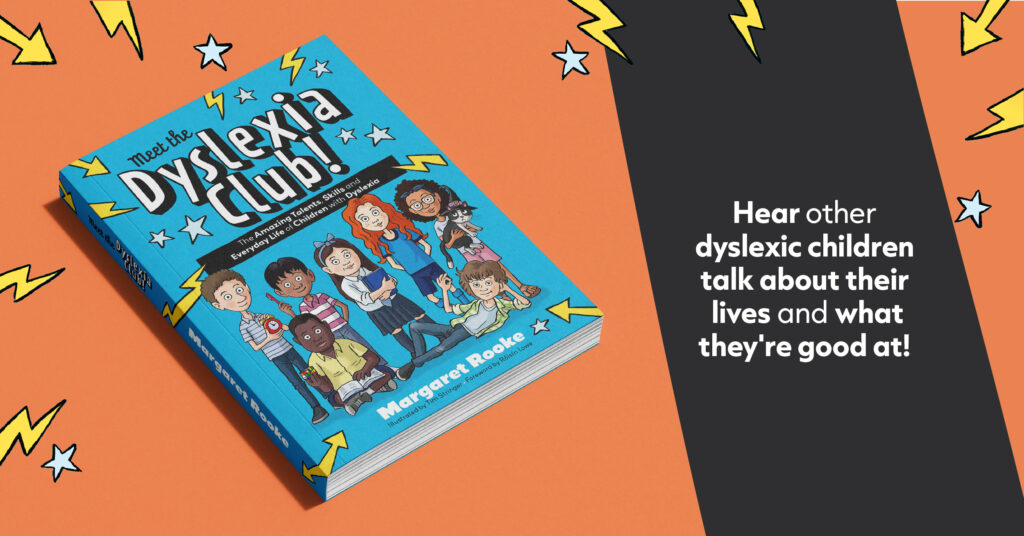How to support a child with dyslexia to discover their strengths
Margaret Rooke is the author of Meet the Dyslexia Club! and the parent of a dyslexic daughter.

by Margaret Rooke
If our children seem to be struggling with reading, writing and spelling, it’s all too easy to fill our minds with fears about their future. A large dose of anxiety can so often feel like something that lands uninvited on our doorstep when we become parents.
The truth is that our children will also have talents and skills, though we may not have taken in how significant these are.
It can feel so tempting to focus on what we hope will help them get through their spelling tests and SATS but, as well as their schoolwork, it’s vital to encourage them to pay attention to what comes easily to them.
These are the aspects of life that they are obviously motivated to do. We all – young and old – have strengths. We need to encourage these in our children, giving them time and space to develop and to feel good about themselves, now and in the future. Some of these strengths are thought to come naturally to those with dyslexia.
I spoke to a lot of young children for my latest book, Meet The Dyslexia Club! The Amazing Talents, Skills and Everyday Life of Children with Dyslexia. I asked them what they most wanted from the adults around them.
“Let me do more of what I enjoy, like looking after animals,’ said one. ‘Look out for what we’re good at and encourage us to do that,’ said another. ‘Have some fun with us,’ said a third.
When children did mention help with schoolwork, they were very specific:
‘Help me read the things that interest me, like football match reports and instructions for games,’ and, ‘Give us loads of time to finish what we’re doing. Understand we’re going as quickly as we can.’
If you’re concerned about how your children are doing at school, of course it’s important to make time to talk to your child’s teacher and work out together what can be done to help.
However it’s vital to remember that those elements of life they excel at naturally may not be covered by the school curriculum, but they may help them flourish in the world of work after they leave.
So how do we inspire our children to do their very best in those areas they love?
- Encourage them to spend time on their hobbies. This will help them find ways to increase their knowledge and skillset.
- Their talents can be obvious, like being good at art or sport. They can be hobbies or personality traits it’s easy to take for granted – anything from being a natural and contented cook, to being a kind, trustworthy and understanding friend, or letting their minds run free as a storyteller. In fact all of these can lead to different careers, from being a chef to being a counsellor.
- Look out for personality traits, like the ability to stay focused on a task or understanding the importance of compromise – both so important in many lines of work.
- When you spot these strengths, talk about them with your child. Observe the specifics of what they’re good at and talk about these to encourage them further.
- Give yourself credit for what comes naturally to you as a successful adult, all those qualities that enable you to live a rounded life. Remember, our children so often copy what they see us do, not what we ask them to do.
- Have fun with your children. Allow them to forget about life’s difficulties, helping them to bring these into perspective.
- And together take a look at Meet The Dyslexia Club! The Amazing Talents, Skills and Everyday Life of Children with Dyslexia. This is a book based on the words of young children. As these children explore the talents and skills they’ve spotted in themselves, your own child will be encouraged to identify similar strengths within themselves. Together you can recognise ways they can shine.
Read more about Meet The Dyslexia Club! The Amazing Talents, Skills and Everyday Life of Children with Dyslexia where you will meet a group of dyslexic children who talk about their lives, what their schooldays are like and what they are great at.